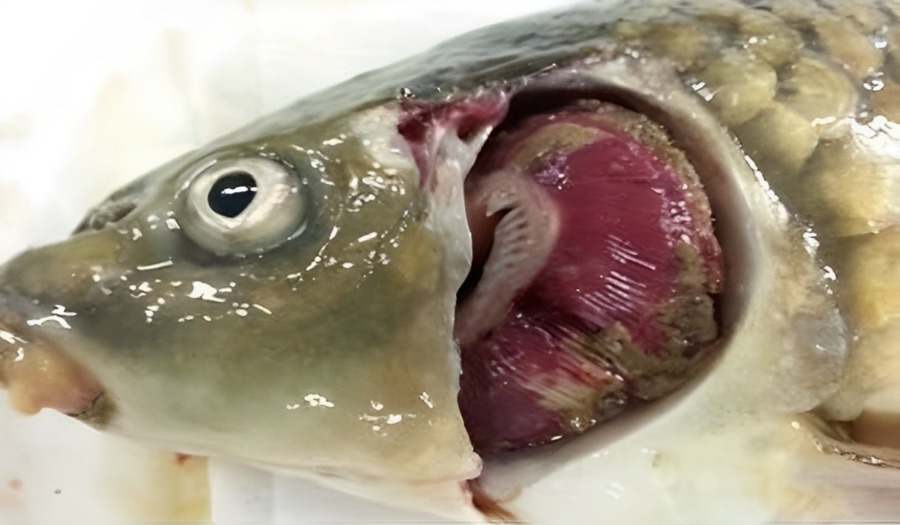Outbreaks of Koi Herpesvirus (KHV) Disease in 2023: A Concern for Fish Health
- TDS News
- Trending
- United Kingdom
- August 23, 2023

United Kingdom– The Fish Health Inspectorate (FHI) has reported outbreaks of Koi herpesvirus (KHV) disease at several sites across England and Wales. This announcement has raised significant concerns within the aquaculture and fishing communities. KHV is a formidable viral disease that poses a serious threat to common and ornamental carp species (Cyprinus carpio). The FHI’s efforts to monitor, control, and prevent the spread of the disease are vital to safeguarding the health of aquatic ecosystems and the livelihoods of those dependent on them.
KHV is a listed disease in the United Kingdom, and its impact on fish populations can be devastating. Affected fish, especially during water temperatures ranging from 16 to 28 °C, exhibit distinctive symptoms, including necrotic (white or brown) patches on the gills, rough patches on the skin with sloughing mucous, and sunken eyes. If any of these signs are observed, fish owners, fishery operators, and concerned individuals are urged to contact the FHI to report potential outbreaks promptly. Rapid identification and reporting are crucial in controlling the disease’s spread.
Importantly, the FHI has reassured the public that KHV poses no risk to human health. The virus exclusively targets fish and does not harm human consumers of fish products or recreational visitors to affected waters.
Once KHV is confirmed at a site, a comprehensive monitoring program is initiated by the FHI. This program is designed to assess the extent of the outbreak, inspect the site’s compliance with regulatory controls, and determine the appropriate measures to contain the disease. These measures are imperative to prevent further transmission and safeguard unaffected aquatic environments.
In the event of a confirmed designation, specific disease controls are enacted by the FHI. These controls include stringent restrictions on the movement of aquatic animals, including eggs and gametes, within, into, and out of the designated area. Additionally, the disposal of infected aquatic animals, eggs, and gametes must adhere to approved methods for handling Category 2 animal-by-product waste, aligning with local Environmental Health Department regulations. The FHI mandates immediate reporting of any re-occurrence of mortalities or the spread of the disease to other waters or facilities within the designated area. Moreover, any proposed physical changes to sites within the designated area must be communicated to the FHI in advance, emphasizing their dedication to closely managing the situation.
For those who require consent for changes under the Confirmed Designation Notice, a minimum of 5 working days must be given to the FHI. This approach ensures that proper evaluation and consideration are given to proposed changes that could impact the containment and management of the disease.
In the face of new outbreaks, the FHI enforces strict statutory controls to prevent the disease’s expansion. These controls primarily restrict the movement of aquatic animals, eggs, and gametes, thereby minimizing the risk of transmitting the virus to new areas. Fish enthusiasts, aquaculture operators, and all stakeholders are encouraged to collaborate closely with the FHI, adhere to regulations, and report potential outbreaks promptly. By doing so, we can collectively protect our aquatic resources for present and future generations.








